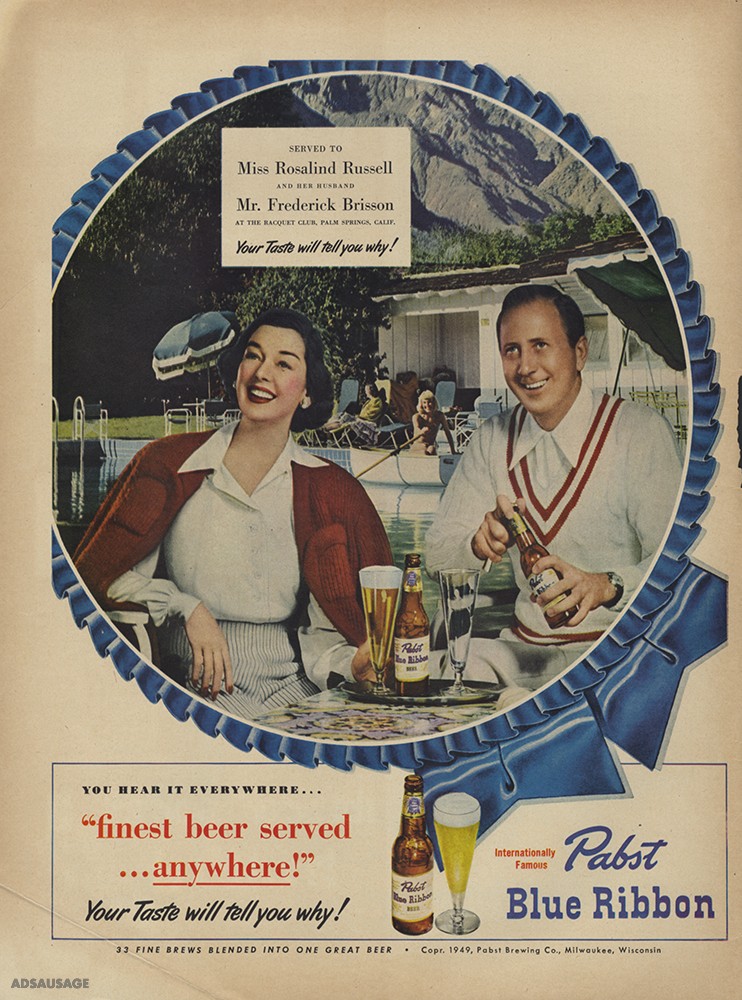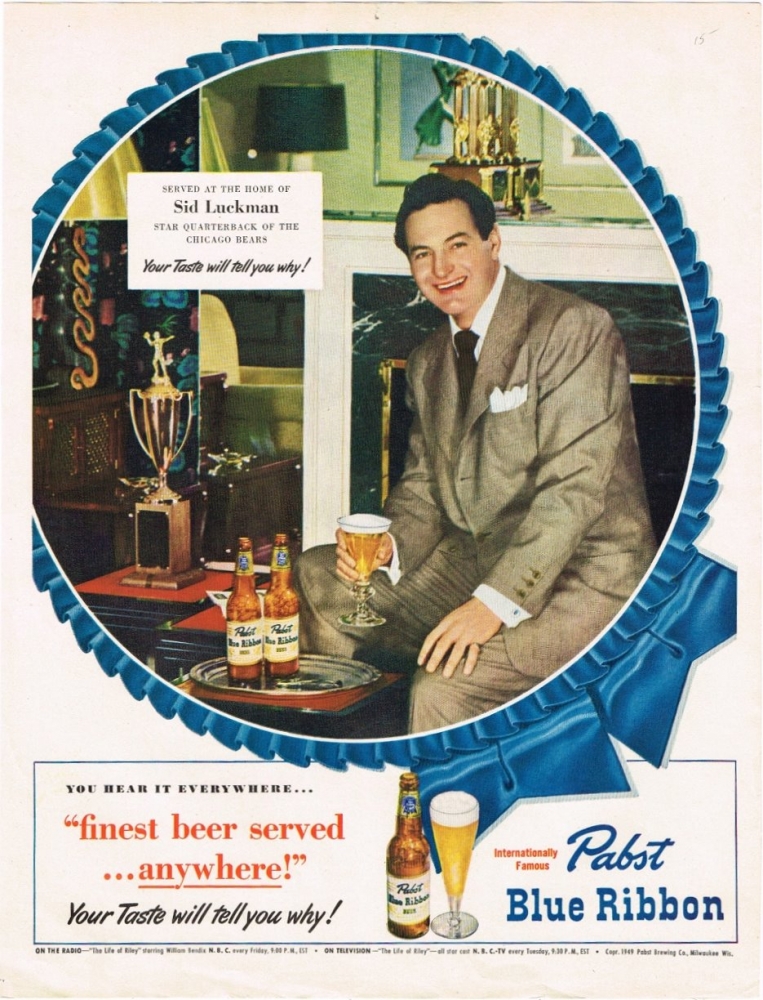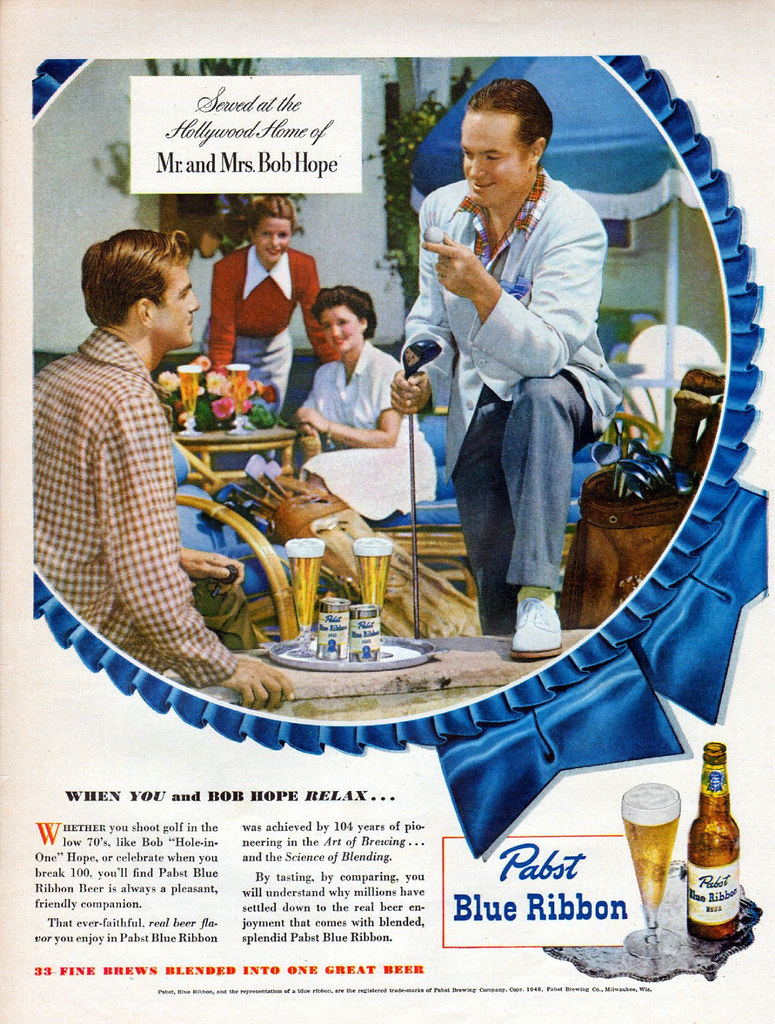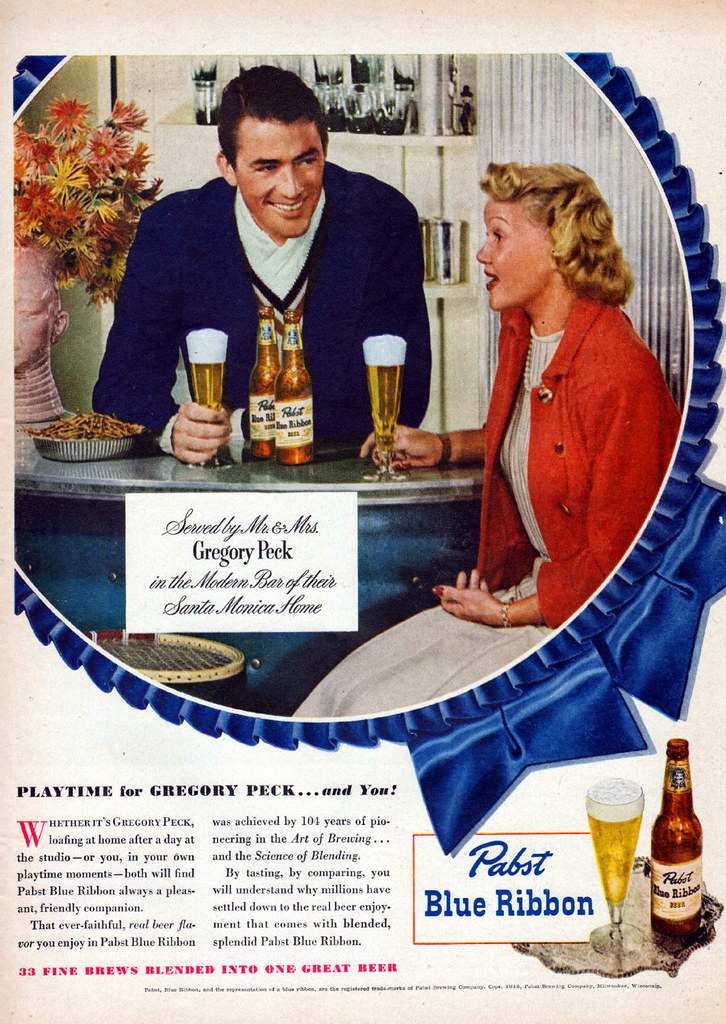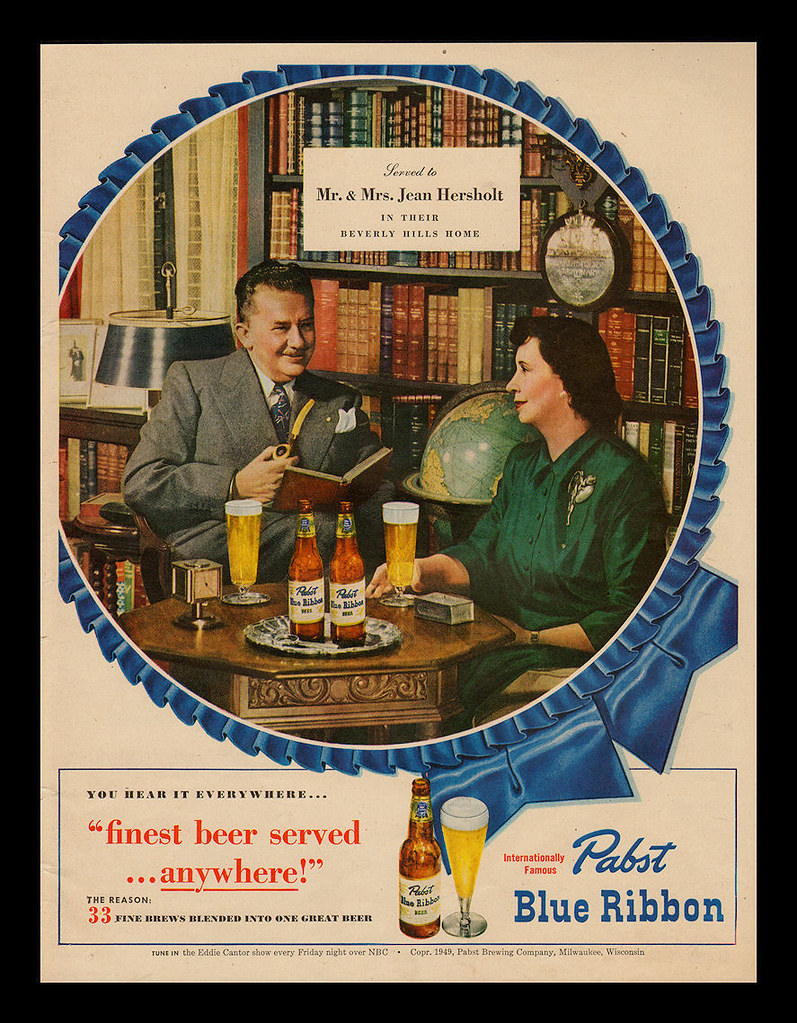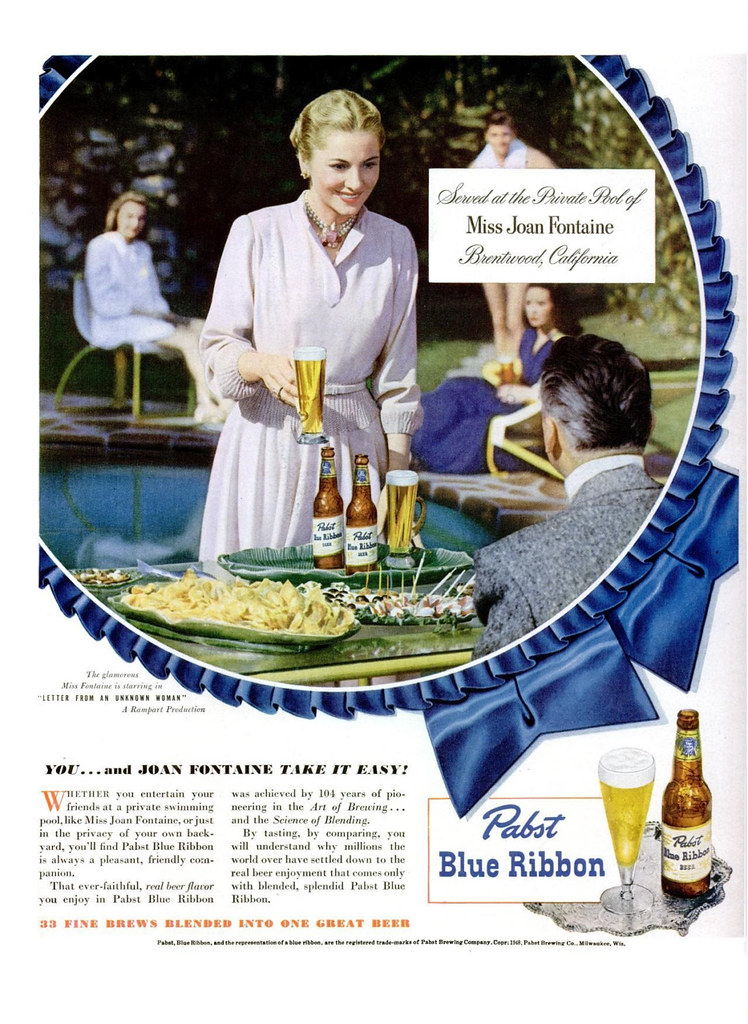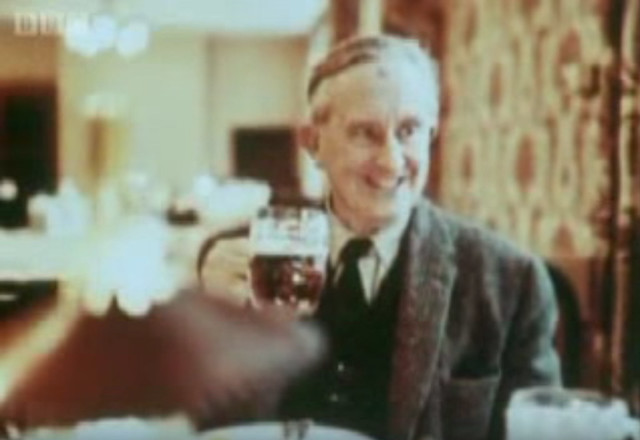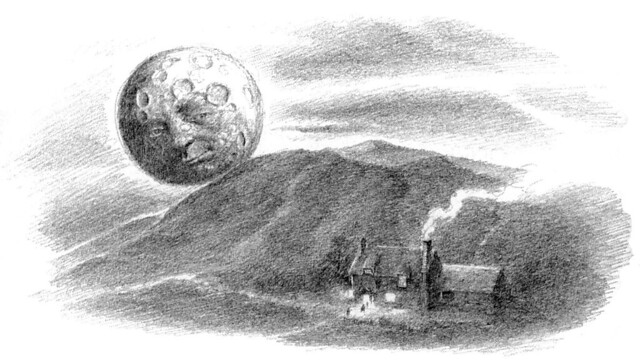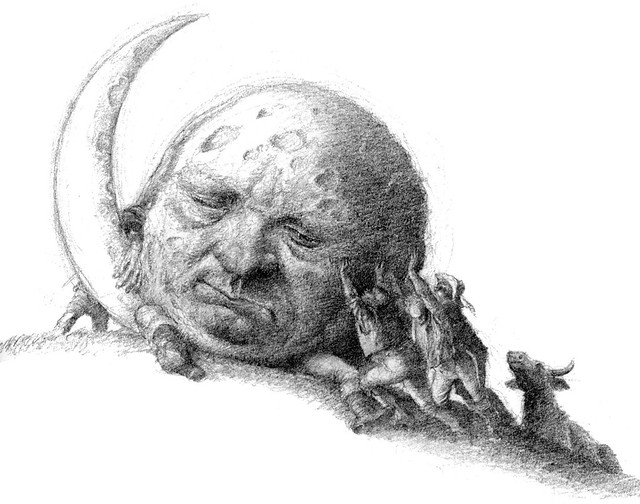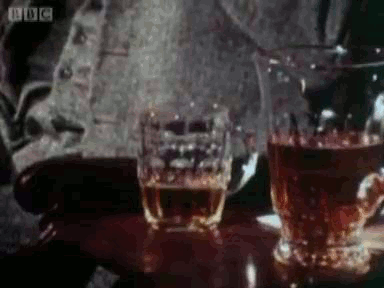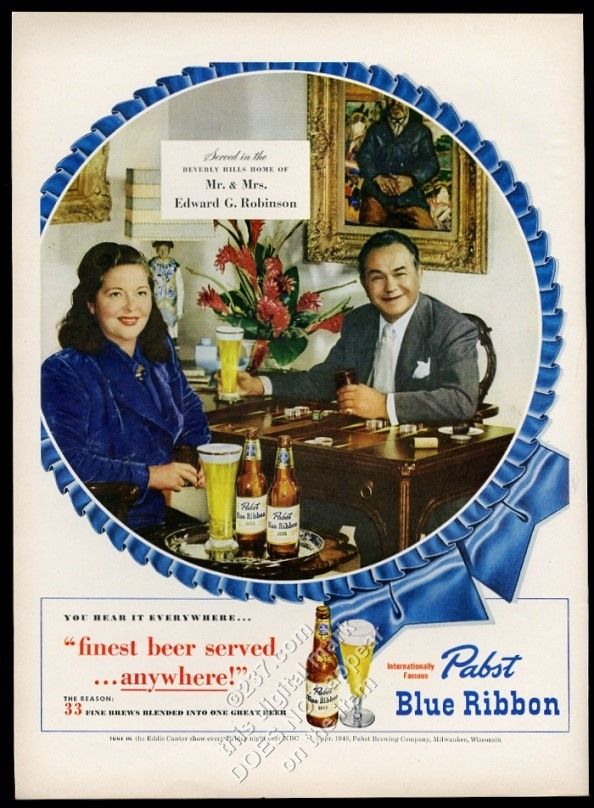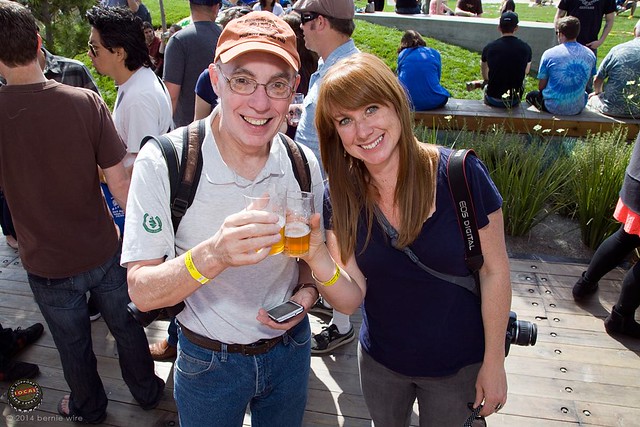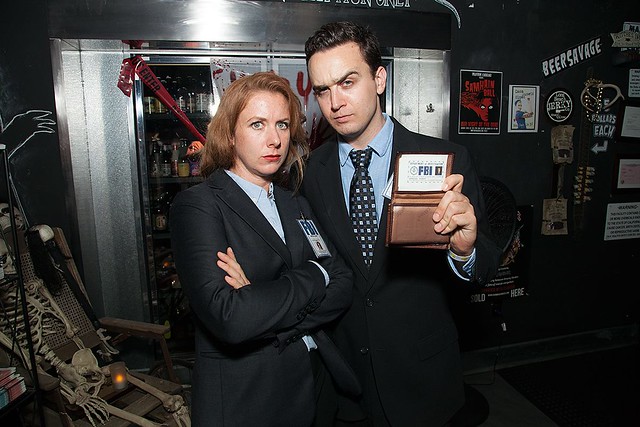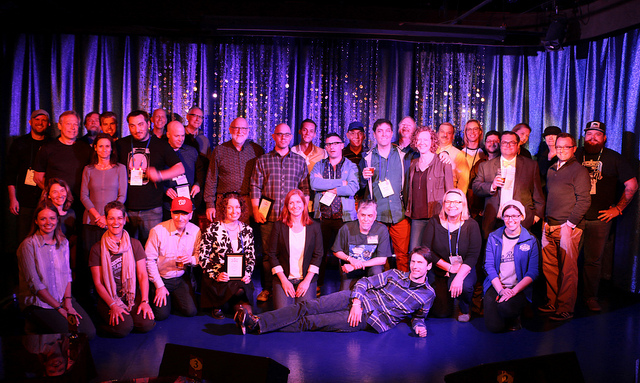
Sunday’s ad is for Pabst Blue Ribbon, from 1949. In the later 1940s, Pabst embarked on a series of ads with celebrity endorsements, photographing star actors, athletes, musicians and other famous people in their homes, enjoying Pabst Blue Ribbon beer. This one features Miss Rosalind Russell and her husband Mr. Frederick Brisson. She “was an American actress of stage and screen, known for her role as fast-talking newspaper reporter Hildy Johnson in the Howard Hawks screwball comedy His Girl Friday (1940), as well as for her portrayals of Mame Dennis in Auntie Mame (1958) and Rose in Gypsy (1962). A noted comedian, she won all five Golden Globes for which she was nominated and was tied with Meryl Streep for most wins until Streep won her sixth award in 2007. Russell won a Tony Award in 1953 for Best Performance by an Actress in a Musical for her portrayal of Ruth in the Broadway show Wonderful Town (a musical based on the film My Sister Eileen, in which she also starred). She was nominated for the Academy Award for Best Actress four times throughout her career.”
In the ad, she’s with her husband, Frederick Brisson, who was a Danish-American producer and the son of actor Carl Brisson. Cary Grant introduced the pair, and was best man at their wedding. They’re not in their home, which is common for this series of ads, but instead are at the Racquet Club in Palm Springs, California. He’s chivalrously poured his wife her beer, and is in the process of opening his beer. But look closely behind the Hollywood couple. There’s a woman rowing a boat in the swimming pool behind them. That seems just a little bit odd, doesn’t it?
